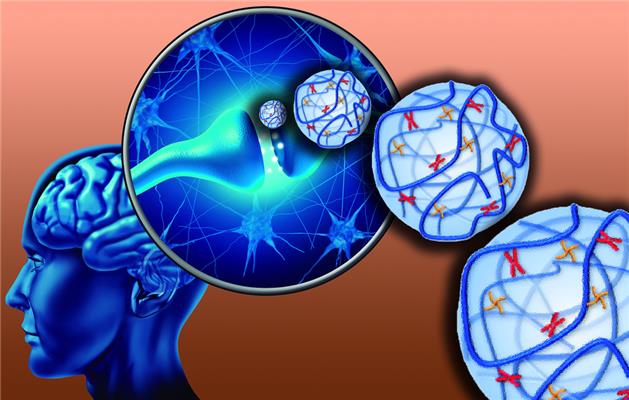Mexican researchers developed a nanogel that enables the growth of new neurons.Working with animal models, Mexican researchers were able to cross the electroencephalic barrier, introduce a nanogel and achieve the growth of neurons within the gel, which shows that it is possible to promote regeneration of brain tissue.
[adsense:336x280:8701650588]
After six years of research with materials engineering and bioengineering, the first nanogel for neuron growth is at the experimental stage and could be applied as a treatment for neurodegenerative diseases such as Alzheimer's and Parkinson in addition to its use during brain scans, like nuclear magnetic resonance or CAT scans, to improve the visibility of the brain.
Dr. Victor Castaño, from the Centre of Applied Physics and Advanced Technology (CFATA) of the National University of Mexico (UNAM) explained that the nanogel is a biocompatible material, functional within the human body that when injected into the brain and through external excitation it allows the spontaneous growth of neurons.
Brain tissue
"We wanted to improve and advance the generation of biomaterials for regenerating brain tissue. During the experiments we crossed the electroencephalic barrier that keeps the brain isolated from the body; by crossing it, we were allowed to introduce the nanogel and for it to act without harming the body. We watched how, within the gel, neurons began to grow; this wouldn’t have been possible in any other way.
"Also, with the help of lase tweezers we took two light phases and stimulated the neuron as if we were pulling it and putting it to exercise, this gave us favorable results in increased neuronal tissue," explained Dr. Castaño, member of the Commission of Biomedical Specialty, from the Engineering Academy of Mexico (AIM).
After laboratory modeling and use of the right materials, the work team composed of researchers from the Institute of Neurobiology at UNAM and the University of Singapore created a small gelatin made with nanoparticles.
[adsense:468x15:2204050025]
"The ability to offer alternatives to diseases that currently don’t have a cure and it being with Mexican technology has great impact and is of great value; however, we must work in a transdisciplinary way to allow scientific and technological advances," concluded the Mexican researcher.
The Ministry of Health reports that in Mexico more than 500 thousand people suffer from Parkinson's and 850 thousand from Alzheimer's, both neurodegenerative diseases that damage brain nerves.
Source: Investigación y Desarrollo













